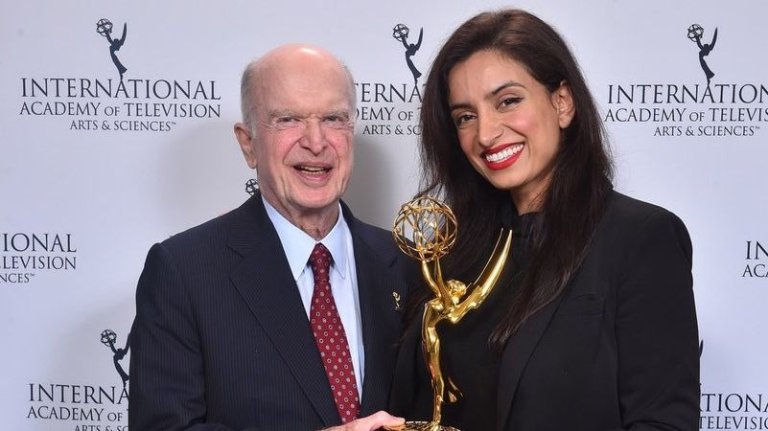Norway’s Deeyah Khan wins her second Emmy
In her fourth documentary, White Right: Meeting The Enemy, she is face-to-face with neo-Nazis and fascists on the front line of the race wars in America

In New York on Monday (1 October), Norwegian director Deeyah Khan received her second Emmy award for her latest documentary, White Right: Meeting The Enemy, which was named Best International Current Affairs Film. Her 2012 debut, Banaz: A Love Story, won the same prize in 2014.
Produced by the UK’s Fuuse Films, and distributed on TV in the US by Netflix, White Right: Meeting The Enemy is her third installment in to the Exposure series which has since 2011 been aired by the UK’s ITV. It has previously won the PeaceJam Special Prize winner at this year’s Monte-Carlo TV Festival.
Following the award-winning Jihad: A Story of the Others (2015) - in which she spoke to radicalised British Muslims who had fought in the name of jihad on the battlefields of Afghanistan, Iraq, Bosnia and Chechnya and now found themselves full of regret – Deeyah joins the frontline of the race wars in America. She sits face-to-face with fascists, racists and the proponents of the “alt-right” (alternative right) ideologies that have propelled Donald Trump to the presidency.
With a US president propagating anti-Muslim propaganda, the far-right gaining ground in German elections, hate crime rising in the UK, and divisive populist rhetoric infecting political and public discourse across western democracies, Khan’s asks why. From Richard Spencer to Jeff Schoep, leader of American’s largest neo-Nazi organisation, her tries to find the deeper human behind this, Rather than dismiss these men as monsters, she is determined to discover the men behind the masks.
With her own safety in jeopardy, Khan finds herself in the midst of the 2017 Unite the Right march in Charlottesville, Virginia, where an anti-racist activist was killed. When she was six, her father took her to an anti-racism rally. He promised her that things would get better - the skinhead gangs that terrorised their family and families like them would soon find themselves relics of past prejudices, and tomorrow would be a more tolerant time. But after three decades tomorrow is yet to come.
Born in Norway by Pakistani immigrant parents, Khan has used her experiences of living between different cultures – both the beauty and the challenges – in her films. "To say she is an inspiration is an understatement. She is one of the bravest, most indomitable women... facing down bullies and extremists with intelligence and unflinching spirit," wrote The London Times. “Part investigative journalist, part almost psychotherapist, Khan uses hard and soft skills to discover what drives such hatred and forces people to face her, their so-called enemy: it gets under their skin and yields results.”
